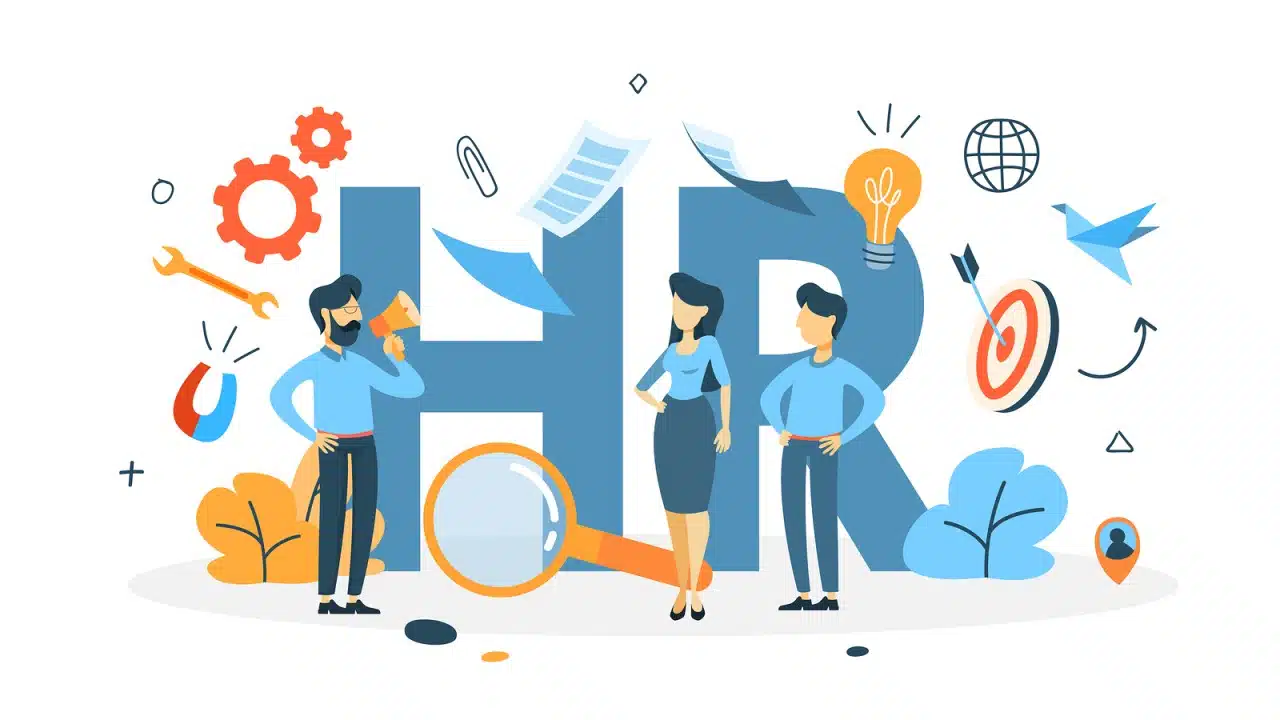You've landed an interview for your dream job. You're excited, but also nervous about making a good impression and acing the interview. Here are some Job Interview Tips To Help You Ace Any Interview.
Don't worry – with a little preparation and practice, you can confidently showcase your skills and experience to land that job.
For example, let's say you're interviewing for a marketing position at a well-known tech company. The competition is fierce, so you want to make sure you stand out from other applicants.
By following these job interview tips, you can show the interviewer why you're the best fit for the role and increase your chances of getting hired.
READ ALSO: Top Job Interview Questions and Corresponding Answers
- Research the Company and the Position
- Practice Your Answers to Common Interview Questions
- Dress Appropriately
- Arrive Early and Be Prepared
- Demonstrate Your Skills and Experience
- Show Confidence and Positivity
- Follow-Up After the Interview
- Learn from Your Experience
- Frequently Asked Questions on Job Interview Tips
- Conclusion
Research the Company and the Position
Before heading into any interview, it's crucial to prepare by researching the company and the role you're pursuing.
This is important because it shows that you're interested in the position and that you've taken the time to learn more about what they do. It also helps you determine whether or not this job is a good fit for your career aspirations.
When preparing for an interview, research the company's website, social media pages, and any other relevant online resources. Look for information on their mission statement, core values, products or services offered, as well as recent news or press releases.

Understanding these things will help you align your responses during the interview with what the company stands for.
By conducting thorough research before your interview, it demonstrates that you're proactive and passionate about securing this role.
Make sure to take note of key details such as company culture and values, which should inform how you market yourself during the actual interview. By doing so, it sets a good foundation and could make all the difference when being considered for a job offer.
Next up: Practice your answers to common interview questions!
Practice Your Answers to Common Interview Questions
Want to feel more confident in your next job interview? Brush up on your answers to common questions with some practice.
Role-playing exercises and mock interview sessions can be incredibly helpful in preparing you for the real thing. You might feel silly at first, but the more you practice, the more comfortable you'll become.
Start by researching common interview questions for your field or industry. Write down a list of these questions and then answer them aloud, either to yourself or with a friend or family member acting as an interviewer.
Pay attention to your body language and tone of voice as well as the content of your answers. Make adjustments as needed until you feel like your responses are strong and concise.
Remember that while it's important to prepare for specific questions, it's equally important to be flexible and adaptable during the actual interview. Don't memorize rote answers; instead, focus on developing talking points that showcase your skills and experience in a way that's relevant to the position you're applying for.
With enough preparation and practice, you'll be able to handle any question thrown your way with ease. And don't forget – dressing appropriately is just as important!
READ ALSO: How To Get Remote Communication Jobs Anywhere
Dress Appropriately
Dressing appropriately is crucial in presenting a favorable image during the hiring process. Fashion tips vary depending on the company and industry, but it's always better to err on the side of caution and dress more conservatively than you normally would.
If you're unsure about what to wear, research the company's dress code expectations or ask your recruiter or HR representative. For a corporate job, men should opt for a suit and tie while women can wear a pantsuit or skirt suit with closed-toe shoes.
Avoid bright colors or flashy accessories that could distract from your qualifications.
For other industries such as creative fields, attire can be more casual but still polished. If you're not sure how formal an interview will be, it's always best to ask beforehand. Remember that dressing appropriately is just one aspect of making a good first impression during an interview.
It demonstrates that you respect the interviewer's time and take the opportunity seriously. By taking care of your appearance, you show potential employers that you are professional and confident in yourself – two qualities every employer wants in their employees.
Next up: arrive early and be prepared for anything!
Arrive Early and Be Prepared
When preparing for an interview, it's crucial to bring extra copies of your resume. You never know if the interviewer may have misplaced or forgotten to print out a copy for themselves.
In addition, having a list of questions prepared to ask the interviewer shows that you're genuinely interested in the position and have done research on the company.
Lastly, arriving early not only shows punctuality but also gives you time to mentally prepare and calm any nerves before meeting with your potential employer.
Bring Extra Copies of Your Resume
Make sure to bring along some extra copies of your resume, so you can confidently hand them out if requested during the interview.
Here are a few things you should keep in mind when preparing your resumes:
- How to format your resume: Your resume should be easy to read and well-organized. Use bullet points and headings to make it more visually appealing.
- Highlight your accomplishments: Instead of just listing your job responsibilities, focus on what you achieved in each role. This will give potential employers a better idea of how you can contribute to their organization.
- Address employment gaps: If you have gaps in your employment history, explain them briefly but honestly. You can also highlight any relevant volunteer work or freelance projects that you worked on during that time.
- Tailor your resume for the job: Make sure that the skills and experiences highlighted on your resume align with the requirements listed in the job posting.
- Proofread carefully: Typos and grammatical errors can make a bad first impression. Before heading out to an interview, triple-check your resume for any mistakes.
By bringing extra copies of your resume and following these tips, you'll be well-prepared for any questions about your work experience or qualifications that might come up during the interview.
Now let's move on to another crucial step: having a list of questions ready to ask the interviewer.
Have a List of Questions to Ask the Interviewer
As an interviewee, you must not forget that the interviewer has certain expectations from you. They are looking for someone who can bring value to their organization and is a good fit for the company culture.
Therefore, it's essential to go beyond answering their questions and show your interest in the position and the company by asking insightful questions.
To prepare for this, create a list of questions before the interview that will demonstrate your enthusiasm and understanding of both the job and the company.
Here is a table with examples of potential questions to ask during an interview:
| Question Type | Example Questions |
|---|---|
| Company Culture | What type of people tend to excel in this environment? |
| Job Responsibilities | Can you give me an example of what I would be working on day-to-day? |
| Career Development | How does career growth work within this company? |
| Future Goals | What are some short-term or long-term goals you have for this department/team/company? |
By asking thoughtful questions like these, you not only show your interest in the position but also gain valuable insights into what it would be like to work at that particular company.
This will help you make an informed decision if given a job offer later on.
Demonstrate Your Skills and Experience
To demonstrate your skills and experience, it's crucial to provide specific examples and results. Think about your past experiences and select the ones that best showcase your skills and accomplishments.
Use the STAR method (Situation, Task, Action, Result) to structure your answers and give concrete details.
When it comes to showing passion for the role, talk about why you're interested in it and what motivates you to succeed in this field. Share personal stories or anecdotes that demonstrate your enthusiasm for the job.
Provide Specific Examples and Results
If you're looking to impress your interviewer, telling a personal anecdote that coincidentally showcases the traits they're looking for can go a long way. Interview success stories are great ways to provide specific examples and results that demonstrate your skills and experience in action.
Here are some tips to help you craft a compelling interview success story:
- Choose a relevant experience: Make sure that the story you choose is relevant to the role you're applying for. Focus on experiences that showcase skills and qualities that directly relate to the job requirements.
- Highlight specific actions and results: Be sure to highlight specific actions you took and measurable results achieved. This will help emphasize your abilities while also providing concrete evidence of your accomplishments.
- Practice telling your story: Practice telling your story out loud so it flows naturally during an interview. Rehearsing beforehand will help ensure that you don't forget any important details or stumble over words.
- Avoid common interview mistakes: When sharing an interview success story, make sure not to ramble or get sidetracked by irrelevant details. Keep it concise, focused, and engaging.
By providing specific examples of how you've applied your skills in past roles, interviewers will gain more insight into what kind of employee you'll be if hired by their company.
However, remember not to come off as boastful or arrogant when sharing these anecdotes- strike a balance between enthusiasm and modesty by staying humble but confident throughout the conversation.
Showcasing passion for the role is another key component in acing any job interview- let's explore how this can be done in our next section!
Show Your Passion for the Role
Showcasing your enthusiasm for the position is crucial in demonstrating that you're invested and committed to bringing your best self to work every day.
Share your enthusiasm by expressing how excited you are about the position and why it's the perfect fit for you. Relate personal experiences that align with the job responsibilities and show how passionate you are about contributing to the company's success.
Additionally, don't be afraid to ask questions about the role during the interview process. This shows that you're genuinely interested in learning more and want to ensure that this is a good match for both parties.
By showing your passion for the role, you can leave a lasting impression on the interviewer and increase your chances of landing the job. Remember, people want to hire individuals who are not only qualified but also enthusiastic about their work!
As you proceed through the interview process, remember to maintain confidence and positivity. By doing so, you'll keep yourself composed, focused, and motivated throughout each step of the way.
Show Confidence and Positivity
When it comes to impressing your potential employer, projecting confidence and positivity can go a long way. Building self-esteem is crucial in showing that you're confident about your skills and capable of handling any task thrown at you.
Remember that the interviewer is looking for someone who can not only do the job but also work well with others. So, make sure to show that you're a positive team player.
Overcoming nervousness is another key aspect of projecting confidence during an interview. It's natural to feel anxious before an interview, but practicing beforehand can help ease those nerves.
Before the big day, try rehearsing common interview questions with family or friends. Don't hesitate to ask for feedback on how you come across; that'll help identify areas where you need improvement.
During the actual interview, take deep breaths and maintain a good posture to exude calmness and positivity. Smile often and keep eye contact with the interviewer while answering questions. Remember that positivity attracts positivity, so try to focus on the positive aspects of your experiences even when asked challenging questions.
By following these tips, you'll be able to project confidence and positivity throughout your entire interview process!
Now that you've aced your interview by showing confidence and positivity, let's talk about what happens after it ends – follow-up!
Follow-Up After the Interview
- Send a Thank-You Email or Note: After the interview, it's important to send a thank-you email or note to each person you spoke with. This shows your appreciation for their time and consideration and can help keep you on top of your mind as they continue the hiring process.
- Reiterate Your Interest in the Position: Use your follow-up communication as an opportunity to reiterate your interest in the position and highlight any relevant skills or experience that weren't discussed during the interview. This can help reinforce why you're a strong candidate for the job.
- Keep it Professional: While it's important to express gratitude and enthusiasm, make sure your follow-up communication remains professional and concise. Avoid coming across as pushy or desperate, and aim to strike a balance between showing your interest without overdoing it.
Send a Thank-You Email or Note
Don't forget to send a thank-you email or note after the interview to increase your chances of getting hired. Research shows that candidates who take the time to do so are 22% more likely to be chosen for the job.
The importance of timeliness cannot be overstated here – aim to send your thank you within 24 hours of your interview.
Make sure that your message is personalized and specific, too. A generic ‘thank you for your time' won't cut it – show that you paid attention during the interview by mentioning something specific that was discussed or highlighting an aspect of the job that particularly interests you.
This will help make a lasting impression and demonstrate how serious you are about securing this position. With these tips in mind, let's move on to reiterating your interest in the position.
Reiterate Your Interest in the Position
One of the ways to show your interest in a job position is through your body language during an interview. Leaning forward, making eye contact, and nodding in agreement are some of the non-verbal cues that can indicate you're genuinely interested in the role.
However, it's not enough to rely solely on these gestures. It's crucial to reiterate your interest verbally, too.
Here are three ways you can do this effectively:
- Ask questions about the company culture and expectations for employees.
- Explain how your skills and experience align with the position requirements.
- Follow up after the interview with a thank-you email expressing your enthusiasm for the opportunity.
By reiterating your interest in these ways, you'll show that you've done research on the company and are excited about what they have to offer. It also demonstrates that you're proactive and serious about pursuing this job opportunity.
Learn from Your Experience
- Reflect on Your Performance: Take a moment to reflect on your performance after each interview. Ask yourself what went well and what could have been improved upon. This will help you identify areas of strength and weakness, allowing you to better prepare for future interviews.
- Apply Feedback to Future Interviews: After receiving feedback from an interviewer, take the time to digest it and apply it to your next interview. Whether the feedback was positive or negative, there's always room for improvement. Use this feedback as a learning opportunity to help you become a stronger candidate in future interviews.
- Continuously Improve: Remember that every interview is a chance to learn and grow. Don't be discouraged by rejections or setbacks; instead, use them as motivation to continuously improve your interviewing skills.
With practice and reflection, you can ace any job interview that comes your way.
Reflect on Your Performance
Take a moment to really think about how you presented yourself during the interview and what you can improve on for next time. Self-evaluation is essential in becoming better at interviews.
Reflect on your performance, and ask yourself what went well and what didn't. This way, you can identify areas that need improvement and create strategies to enhance your performance.
To help you get started, below are some self-evaluation questions to ask yourself after an interview:
- Did I research the company and role enough beforehand?
- If not, how can I improve my research skills for future interviews?
- Did I answer the questions confidently and clearly?
- If not, how can I practice my communication skills?
By answering these reflective questions honestly, you'll be able to identify gaps in your preparation or delivery. Once identified, note them down as areas of improvement and develop strategies that will help you work on them.
By doing so, you'll feel more confident in future interviews knowing that you've addressed any potential weaknesses from previous experiences.
Apply Feedback to Future Interviews
Applying feedback to your future interviews can be a game-changer in your job search. Reflecting on your performance and taking constructive criticism can help you identify areas of improvement and make necessary changes to increase your chances of success.
It's important to keep an open mind and take feedback as an opportunity for growth, rather than a personal attack. One way to apply feedback is by practicing with mock interviews. Ask someone you trust to conduct a practice interview with you and provide honest feedback afterward.
Take note of the strengths and weaknesses that were identified during the mock interview, and work on improving those areas before your next real interview. Additionally, consider recording yourself during practice interviews so you can watch them back later and evaluate your performance objectively.
Remember, applying feedback is a continuous process that requires patience, commitment, and self-awareness. By doing so, you'll have a better chance of acing any interview that comes your way!
READ ALSO: Tips When Interviewing Job Applicants
Frequently Asked Questions on Job Interview Tips
What are some common mistakes to avoid during a job interview?
During a job interview, it's important to be mindful of your body language and dress code.
Avoid slouching or fidgeting as this can make you appear nervous or disinterested. Make eye contact with your interviewer and sit up straight to convey confidence and engagement.
In terms of dress, always err on the side of professionalism by wearing clean, pressed attire that is appropriate for the company culture. Avoid flashy accessories or overly casual clothing as this can send the wrong message about your commitment to the job.
By paying attention to these details, you'll be able to present yourself in the best possible light and increase your chances of success during any job interview.
How should you handle a difficult interviewer or a tough question?
Dealing with interruptions and navigating personal questions during a job interview can be challenging, but it's important to remain calm and composed.
If an interviewer interrupts you, respectfully ask if you may finish your thought before moving on.
It's also okay to take a moment to gather your thoughts before answering tough personal questions.
Remember to focus on the skills and experiences that make you qualified for the position and try to redirect the conversation back to your professional strengths.
By staying confident and poised in difficult situations, you'll demonstrate your ability to handle pressure and impress potential employers.
What should you do if you realize you made a mistake during the interview?
If you realize you made a mistake during an interview, it can be nerve-wracking. However, according to a recent survey by CareerBuilder, 69% of employers said that they would still consider a candidate who made a minor mistake during the interview process.
The key is to recover quickly and professionally. One way to recover is by acknowledging your mistake and apologizing professionally.
For example, if you forget an answer or give incorrect information, simply say something like “I apologize for my error earlier and would like to clarify…”
This shows that you are accountable and willing to correct mistakes in a professional manner.
Remember that making mistakes is human, but how you handle them can make all the difference.
How can you effectively communicate your strengths and weaknesses during the interview?
To effectively communicate your strengths and weaknesses during a job interview, start with effective storytelling.
Share examples of how you've used your strengths to excel in past roles while being honest about areas for improvement and opportunities for growth.
Pay attention to body language cues like eye contact and posture, which can convey confidence and authenticity.
Using specific examples when discussing both your strengths and weaknesses can show the interviewer that you're self-aware, adaptable, and eager to learn.
Remember to stay honest throughout the interview process as it'll help build trust between you and potential employers.
What are some ways to stand out and leave a lasting impression on the interviewer?
To stand out and leave a lasting impression on the interviewer, you need to come up with creative strategies that showcase your strengths and skills.
One effective way to do this is by using body language tactics such as maintaining eye contact, sitting up straight, and using confident gestures.
Additionally, be sure to ask insightful questions about the company or job position that demonstrate your knowledge and interest in the role.
By combining these techniques with a polished resume and cover letter, you can confidently make a strong impression during any job interview.
Conclusion
So, there you have it! With these job interview tips, you'll be ready to ace any interview that comes your way.
Remember to research the company and position beforehand, practice your answers to common interview questions, dress appropriately, and arrive early and prepared.
During the interview itself, focus on demonstrating your skills and experience while showing confidence and positivity.
And don't forget to follow up after the interview with a thank-you note or email.
As you continue on your job search journey, remember to learn from each experience and use what you've learned to improve for future interviews.
After all, practice makes perfect! So go out there with confidence and ace that next job interview- are you ready?
Thank you for reading our article today! Please remember to share this article on social media to help others benefit too. It also helps us improve our algorithm and relevance to the public. Thanks for Sharring!!! Follow us on Socials: Facebook - LinkedIn - Twitter
Discover more from iParrot Jobs
Subscribe to get the latest posts sent to your email.









